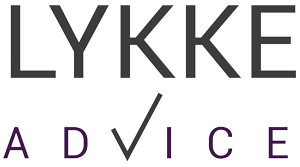In our previous piece, we looked at how the human and financial resources of small and medium-sized companies (SMEs) can be a limiting factor for SMEs willing to engage in EU advocacy and lobbying. In this article, we look into some lesser discussed limiting factors, or their common misperceptions.
Distance and complexity
For SMEs, the EU institutions often feel distant and inaccessible; they are perceived as regulatory bodies establishing rules on their own rather than policymakers who can be engaged to assist in the creation or easement of those rules. SMEs also tend to perceive the policymaking process as ineffective and mostly beneficial to their larger counterparts. This is not necessarily true at the EU level: for instance, over the last years, inputs from small innovating companies have been constantly sought after by the European Commission to find sustainable solutions that can be scaled up to the market level. However, this perception discourages SMEs from engaging policymakers and fuels scepticism that their needs and inputs would be overshadowed by larger interests, to which policymakers are more susceptible. But this issue also lies on the policymakers’ side, who sometimes may see an SME as “less representative” or, more cynically, a smaller vote bank.
The complexity of the regulatory environment is another obstacle for SMEs. It is not easy for a small company with little or no experience in policymaking to navigate the EU bubble. From public consultations and legislative proposals by the European Commission, down to the tertiary legislation and the myriad of closed-door working groups and expert groups involved in it, the legislative process can be extremely intricate to untangle and makes it almost impossible for the inexperienced to understand when to speak to whom and about what.
Different timescales
In some cases, this complexity and the distance it creates between Brussels and SMEs can also lead to a lack of awareness about the benefits of being involved in the policymaking process by SMEs. Decisions taken in Brussels today may have a direct impact on the operations and growth strategies of companies for the next 10 years, but some companies may just not be able to address that connection.
In fact, a mismatch in timing is also a significant issue for SMEs. Entrepreneurs face operational challenges on a daily basis and have to care first and foremost about keeping their business healthy. While they certainly have a strategic vision for their business, they also must put most of their focus on immediate business concerns. On the contrary, policymakers often have broad, long-term perspectives and goals when designing new legislation. Adopting a new law can take a few years from the first Commission’s “call for evidence” to its final signature by the Parliament and the Council. It may even take a few more years for the law to enter into force and even longer for the Commission to adopt ancillary legislation.
Given the above perceptions and experiences, it is understandable why many SMEs are reluctant or unaware when it comes to EU lobbying. And yet, they could play an important role in designing legislation that is fit-for-purpose and future-proof for their own businesses’ growth and market environment, both in traditional sectors and in unregulated areas. Boutique consultancies like Lykke Advice exist to help this vibrant segment of businesses who find themselves too small to have an individual political impact and yet want to have their say on the rules that will impact their operations for decades to come. That’s where Lykke Advice steps in, reducing the distance between SMEs and EU policymakers by providing our knowledge and experience on your behalf with a cost-effective, efficient, and tailor-made set of services. In the next and final article of this series, we will look more in-depth at this topic, digging deeper into the added value of hiring a boutique consultancy and why they are the best solution for SMEs to engage with policymakers compared to larger consultancies.
Contact us if you wish to learn more about our consultancy services.


